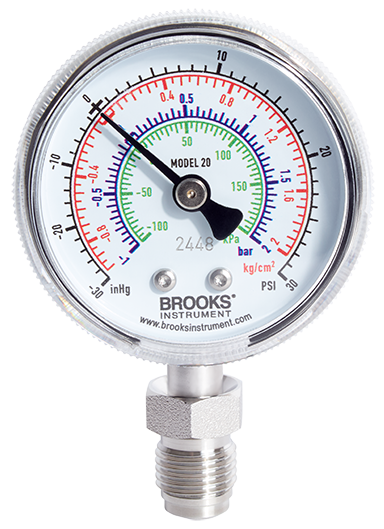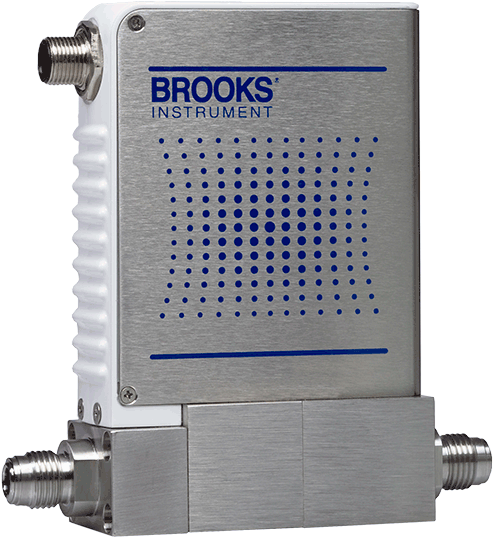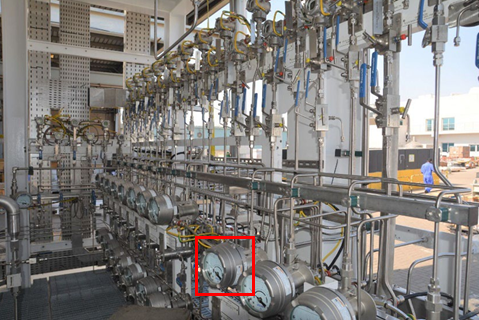Built for the hottest precursors. Engineered for precision.

For more than 30 years, Brooks Instrument has led the market in high-temperature mass flow measurement and control – supporting the most demanding semiconductor processes worldwide. Read more [Picture from video by Brooks Instrument on linkedin.com]
Factory Certified Service Advantage
Brooks Instrument products are recognized as the most stable and reliable in the world. To keep your products operating at the highest level of accuracy and extend their life, your best choice is to trust Brooks Instrument Factory Certified Service instrument repair…
Ultrasonic Flow Meter with EtherNet/IP
Brooks Instrument explains how the BCU Series Clamp-On Ultrasonic Flow Meter enables accurate, non-invasive ultrasonic flow measurement while integrating seamlessly into modern automated bioprocessing systems. Watch the video
PG Series Mechanical Pressure Gauges

PG15 and PG20 mechanical pressure gauges were designed and developed for the demanding high-purity applications of the semiconductor industry. Made of stainless steel, these multi-scale dial faced pressure gauges are durable measuring devices that come in a 1.5″ or 2″ dial size as well as a variety of process connections, pressure ranges, and socket orientations, offering…
Introducing the NEW BCU Series Clamp-On Ultrasonic Flow Meter

The FIRST non-invasive flow meter with integrated EtherNet/IP for real-time process monitoring. Read more [Picture source: Brooks Instrument on linkedin.com]
PC100 Series Metal Sealed Pressure Controllers

The PC100 Series pressure controllers and meters combine a host of high-performance technology features to deliver a new level of pressure control accuracy and reliability to demanding semiconductor, vapor deposition and other ultra-precise manufacturing processes. Read more
Global manufacturing. Local confidence. Milestone achieved

We’re thrilled to celebrate a major achievement — the production of 10,000 GF100 mass flow controllers in our Malaysia manufacturing plant — made possible through the incredible dedication of the local team and our customers. Read more [Picture source: Brooks Instrument on linkedin.com]
Variable Area Flowmeters for EPC-Engineered Offshore Projects

Metal Tube Variable Area Flow Meters are the preferred mechanical flow measurement devices for EPC contractors in oil & gas projects, particularly in the design and engineering of Wellhead Platforms (WHPs). Read more
Something New is Flowing from Brooks Instrument

Introducing the first clamp-on ultrasonic flow meter with integrated EtherNet/IP for single-use systems in bioprocessing. Read more
Advancing research starts with access to the right instrumentation

Brooks Instrument is proud to offer a university discount program – helping students, professors, and researchers obtain high-precision flow and pressure instrumentation for their labs.
With special offerings and support, we’re making it easier to bring world-class measurement and control solutions into the classroom and research environment.
Read more [Picture source:…
